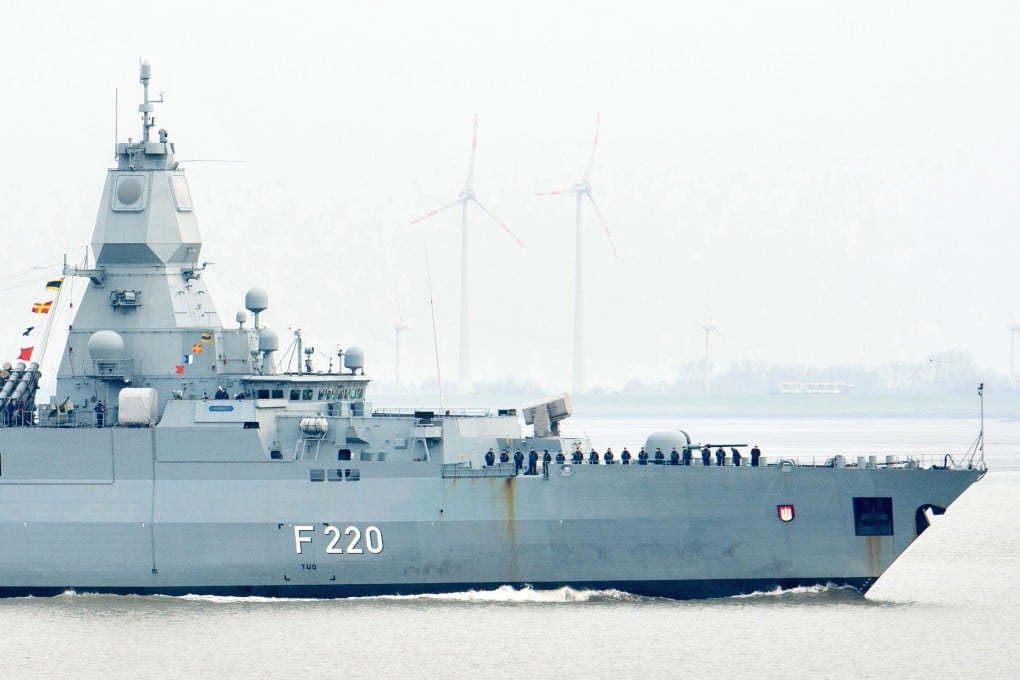Beijing to Berlin: respect South China Sea sovereignty during frigate visit
- Germany plans to send its first warship since 2002 to the heavily contested waterway in August as part of its Indo-Pacific policy
- Senior government officials in Berlin say the ship will not pass within the “12-nautical-mile” limit of any land features

Chinese foreign ministry spokesman Wang Wenbin said on Wednesday that all countries enjoyed freedom of navigation and overflight in the South China Sea, but “this should not be used as an excuse to endanger the sovereignty and security of littoral countries”.
According to a Reuters report, which cited unnamed senior officials in Berlin, a German frigate will depart for Asia in August and cross the South China Sea on its return journey, becoming the first German warship to do so since 2002. But the ship will not pass within 12 nautical miles of any land in the region, the report said.
Sun Keqin, research fellow at the China Institutes of Contemporary International Relations, said the move was concerning as Germany – traditionally more cautious about using its military power – now wanted to boost its ties with the US and Nato.
“China does not wish for the presence of Western military power in the region,” Sun said. “But Germany wants to strengthen its presence in the Indo-Pacific region and enhance collaborations with Asean, Japan, South Korea and India. It also shows the United States hopes Germany will take more responsibility to pressure China.”